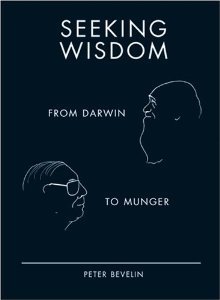What do you think?
Rate this book


318 pages, Hardcover
First published January 1, 2003
You see that again and again - that people have some information they can count well and they have other information much harder to count. So they make the decision based only on what they can count well. And they ignore much more information because it's quality in terms of numeracy is less - even though it's very important in terms of reaching the right cognitive result. All I can tell you is that around Wesco and Berkshire we try not to be like that. We have Lord Keynes' attitude, which Warren quotes all the time: "We'd rather be roughly right than precisely wrong." In other words, if something is terribly important, we'll guess at it rather than just make out judgement based on what happens to be easily countable.